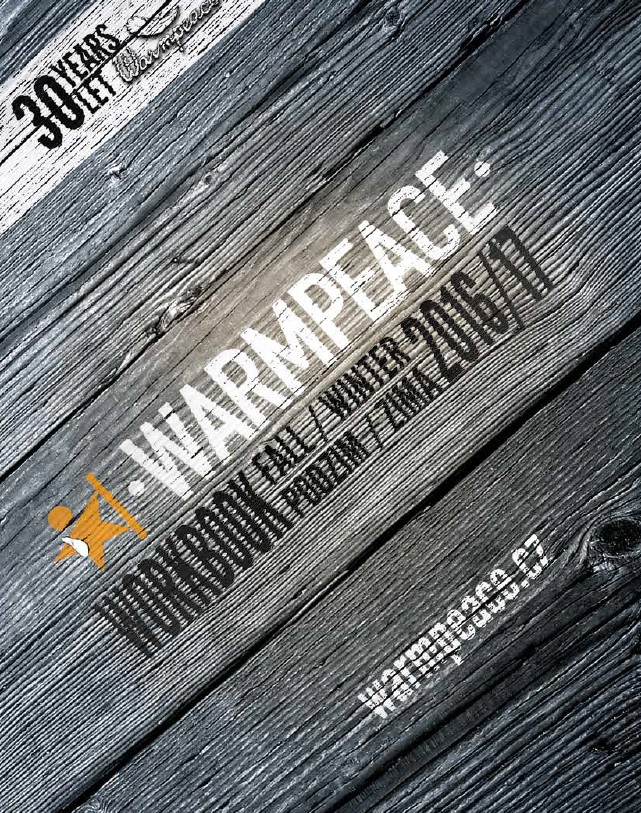MODERN HISTORY (2007 - present day)
Our modern history begins with our company taking its leave from the big city and also our initial cooperation with the Australian company Sea to Summit.
This producer of small articles and accessories first took part in the Outdoor trade fair in Friedrichshafen in 2005. They only had a small 3 x 4 m booth, but several European distributors quickly noticed them, including four of our foreign representatives in Germany and Scandinavia. The clothes and sleeping bags from Warmpeace were a perfect match with the products from Sea to Summit, and so the two brands started being sold alongside each other in these two countries. Adding STS to our range here in the Czech Republic was therefore an incredibly logical, and actually rather simple, step. It took about a year until we became one of Sea To Summit’s international distributors, and we very much appreciated and enjoyed cooperating with them right from the start. After a long break we therefore returned to being distributors on the Czech – and later also Eastern European – market alongside our own production. We kept this up for about 15 years. Cooperating with Sea to Summit was a fantastic experience and only came to an end in 2019 due to the fact that both companies were growing inexorably and required our full attention. The distribution in Eastern Europe was therefore handed over to independent successors.
Between 2005 and 2007, a number of things happened that ended up fundamentally changing the company and the way it works. During this time, we were too focused on the production processes and failed to realise that, for the first time ever, our sales had stagnated. This was bound to happen and we should have anticipated it and been prepared. The market was saturated, one perfect product after the other was added to the market, and so it was not actually surprising. What was surprising was that at that point we had a sales team with several full-time employees, who had neither assessed the situation nor responded to it. After returning from a trip to one of our Chinese producers, we suddenly realised that our warehouses, which tended to gradually become empty, were still full at peak season. We had made a mistake, and it nearly cost us the company. Something was wrong, and not a single person in our rather extensive management team was interested in what had happened or why. This raised the rather fundamental question of why we had a management team at all.
Within a few weeks, the company structure returned to being almost the same as it had been when we started, and we halted the unnecessary inflation of desk jobs. We reinstated the habits we had employed from the very beginning, and again tried to manage as much as possible with as few people as possible and as at low cost as possible. The debts that had gradually been piling up could be paid off almost straight away, and the conventional management system our company had adopted was almost automatically replaced with common sense. Our stock was moved from large warehouses to an old barn which we converted into an original storage space, and in time we left our headquarters and shop in Prague completely. As we no longer had a physical shop, we were no longer in competition with our sellers and could instead focus on providing them with the best possible service. This showed us how valuable focusing our sales in a single direction was and we have remained in this mode ever since. Users therefore buy our products in outdoor shops from our authorised retailers.
All these events changed the way our company works without affecting our production, product development, or the service we offer our partners.
We continued to make use of our small-scale production and development factory in Červený Kostelec for many years to come, until it met the same fate as our facilities in Prague – i.e. until running it gave us more trouble than benefit. We, again, decided to limit our scope and to initiate close cooperation with suppliers who would produce our products completely so that we could focus a hundred percent on product development and distribution. We had never even considered this possibility before, but we suddenly had the opportunity to successfully avail ourselves of external collaborators and companies, not only for our own production needs, but also for many other necessary operations, from storage and distribution to graphics and accounting. This shift is quite noticeable when it comes to our down sleeping bags, for example. They are now partially manufactured in Asia before being sent to Germany, where the semi-manufactured sleeping bags are checked and filled with down before the entire production process is finalised. With a couple of ‘factory-free’ seasons under our belt, we can say that our current system is working well; the quality of our products and services has improved and the process does not strain our ageing nervous systems so much.


